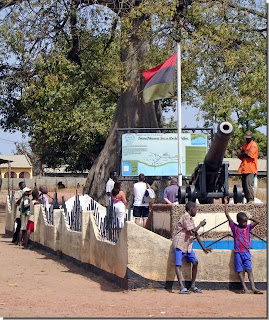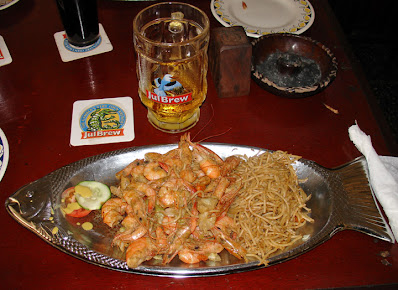The Gambia is one of Africa's smallest countries and, unlike many of its west Africa neighbors, has enjoyed long spells of stability since independence. President Yahya Jammeh ruled the country with an iron fist after seizing power in a bloodless coup in 1994. His 22-year rule came to an end in 2016, when he was defeated in a shock election result by the main opposition candidate, Adama Barrow. Jammeh only left office after mediation by neighboring countries and the threat of armed intervention. Stability has not translated into prosperity. Despite the presence of the Gambia River, which runs through the middle of the country, only one-sixth of the land is arable and poor soil quality has led to the predominance of one crop - peanuts. Tourism is an important source of foreign exchange, as is the money sent home by Gambians living abroad. Most visitors are drawn to the resorts that occupy a stretch of the Atlantic coast.
Source: BBC Country Profiles
American Embassy Banjul:
Ambassador Mike Senko, who had served as Ambassador to the Marshall Islands and Kiribati, was our team leader. He had been a Marine sergeant and didn't take any guff. He was quite distinguished and wore a very formal Stetson hat. He had succeeded Joan Plaisted, who was my DCM in Rabat, Morocco, as Ambassador. Small world the Foreign Service.
This was my first overseas inspection after retiring. Brian Mohler, POL/ECON, was deputy team leader, other team members were Kathryn Berck, Rick Jones, Christopher Mack, and Patrick Whalen. Patrick was a Diplomatic Security inspector on his first inspection. He only stayed with the OIG for a couple of years and transferred to DS. His wife had delivered their second child and he wanted spend more time with his family. Chris Mack ended up leaving for personal reasons.
Our SPANAir flight out of Banjul on Friday, October 17 was delayed 8 hours into Madrid, consequently we missed our connection to Lisbon and remaining flights were fully booked. Instead of going to Lisbon we were put up in a hotel in Madrid by the airline for the weekend and didn't arrive in Luanda until Monday, three days later. The inspection took place between between October 8 and 16, 2008. See separate blog on the stay in Madrid.
In addition to covering financial management and human resources I had to review information technology as well without a lot of previous experience to training. The DCM, Brian Bachman, was also responsible for management but was a political cone officer without any management previous experience or training. We recommended that the DCM retake the "How to be a Certifying Officer" course and pass the exam to be designated as the principal certifying officer for Embassy Banjul. We didn't normally make recommendations for new positions but, in any case, no embassy should be without a management officer. Other recommendations made included:
Findings:
We recommended that the embassy:
· Conduct an internal control review in conjunction with the chief of mission annual management controls assurance. There were issues with charging ORE staff time and transportation while working on representation functions to official residence expenses and amend the official residence expense servants' contracts to exclude overtime. Also, require U.S. dollar payments for reimbursement of representation, travel claims, and travel advances be made by electronic funds transfers to employees' bank accounts.
· Ensure that the information services center's server room is equipped with a power-off switch and request that the regional computer security office conduct a site audit on its computer infrastructure. Also, install the Call-Bill system and automate the process of reconciling telephone bills with the local service and enforce a policy that prohibits making local and long- distance personal calls from government phones.
· Establish a contract with a local medical doctor.
- Review the life, safety, and liability issues associated with the use of the embassy evacuation boat and issue embassy administrative notice.

 |
| Local Market |





No comments:
Post a Comment